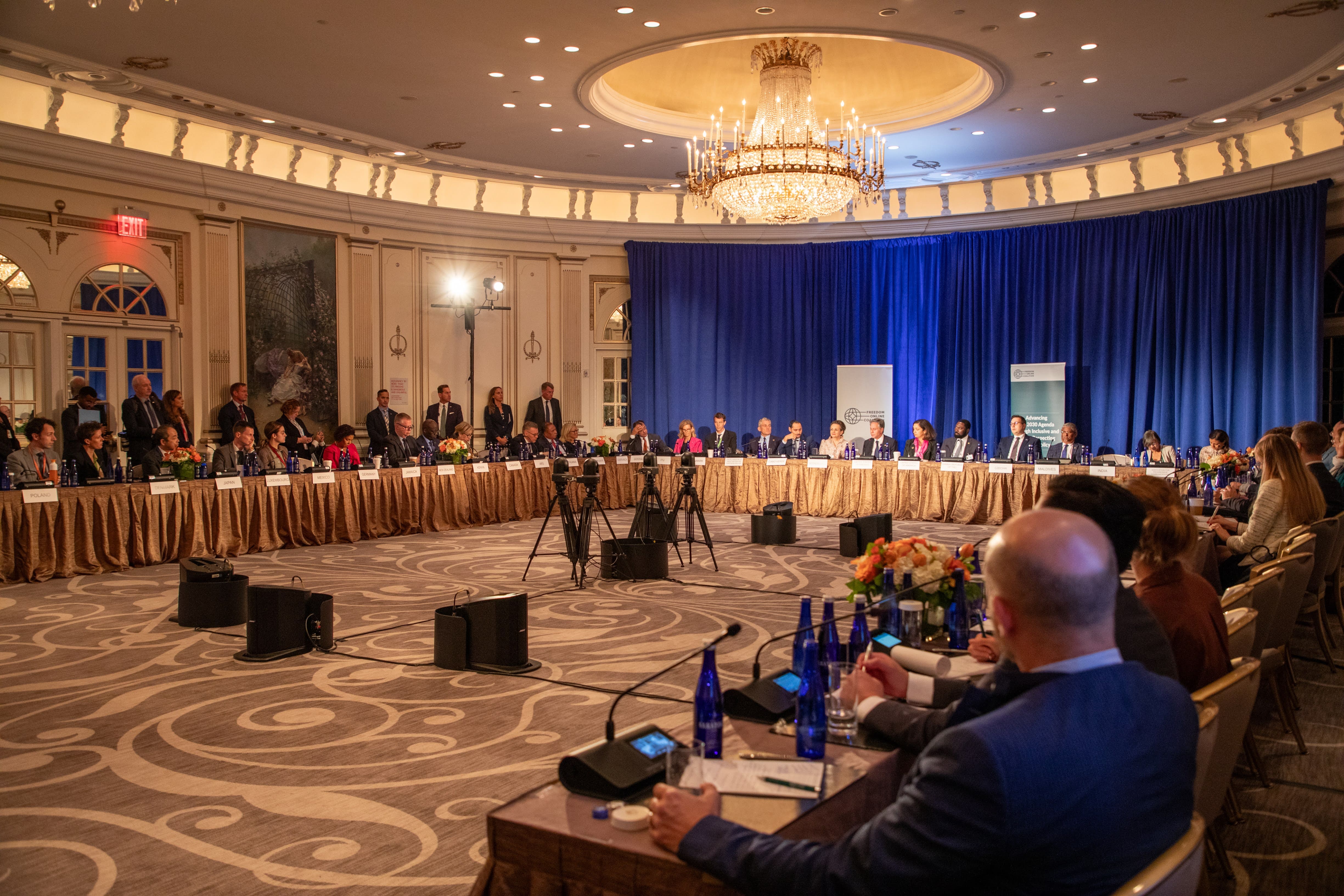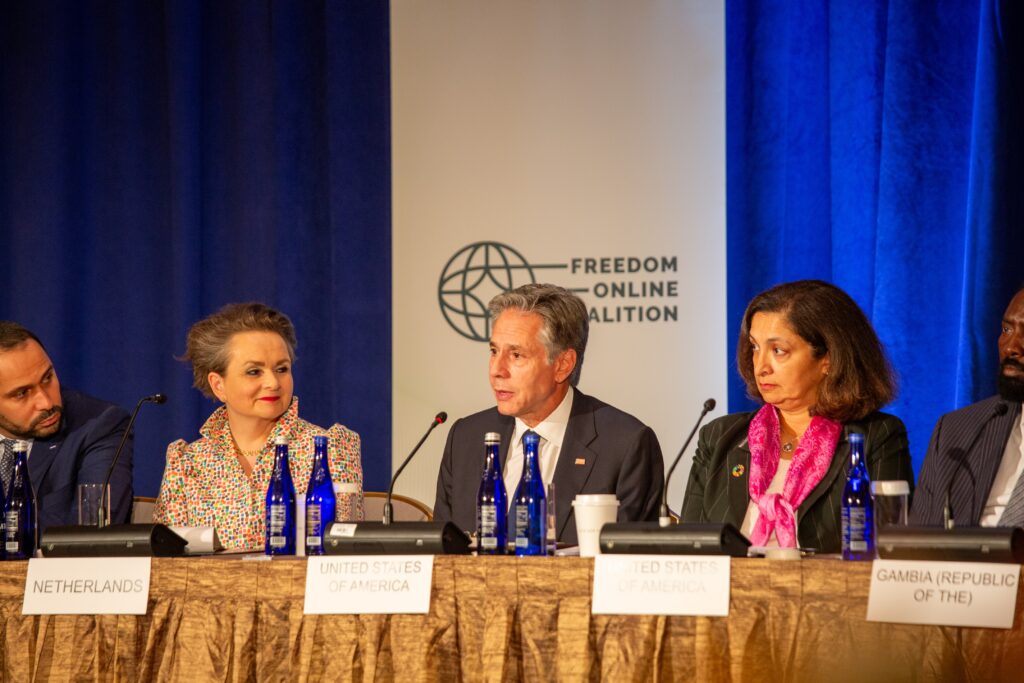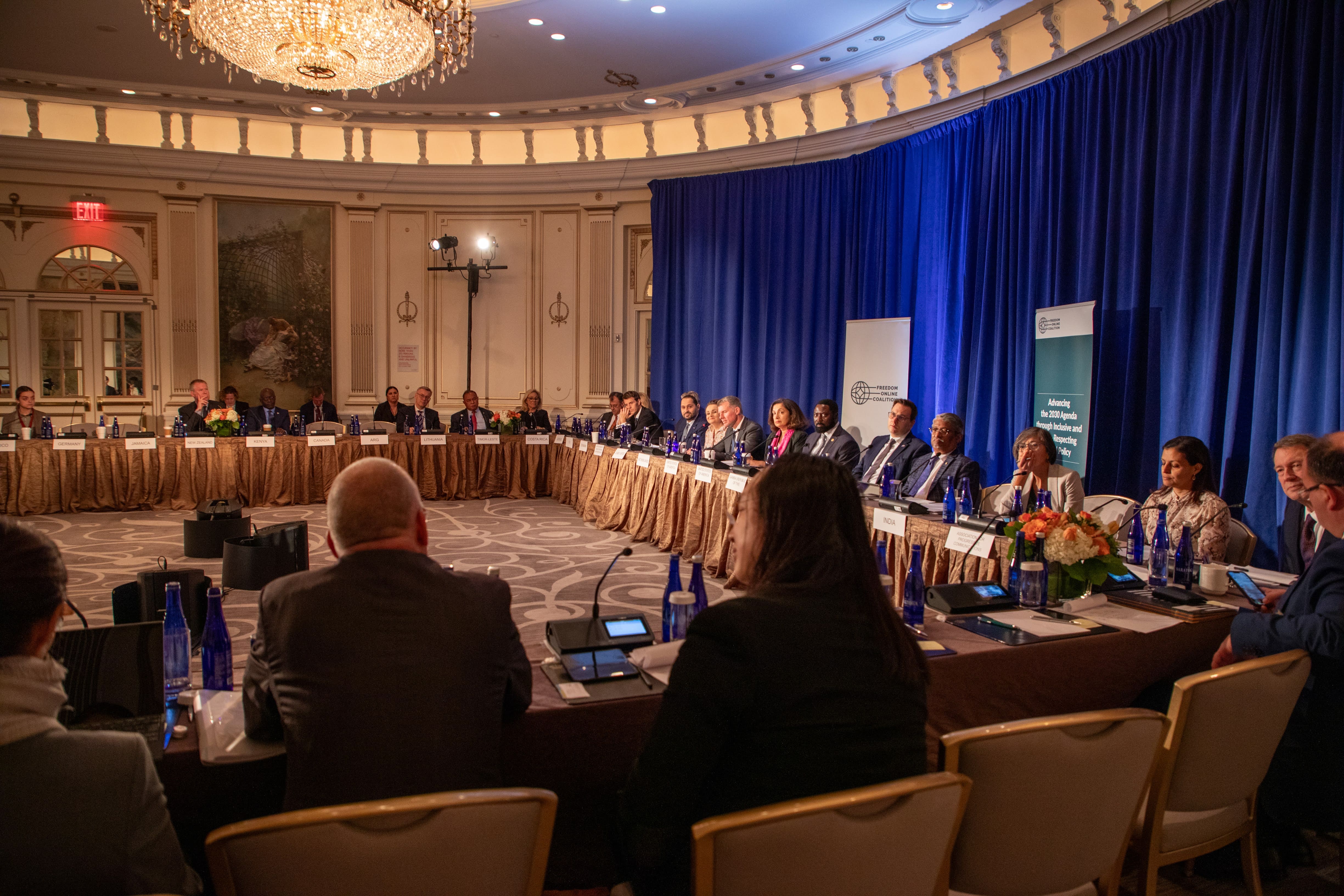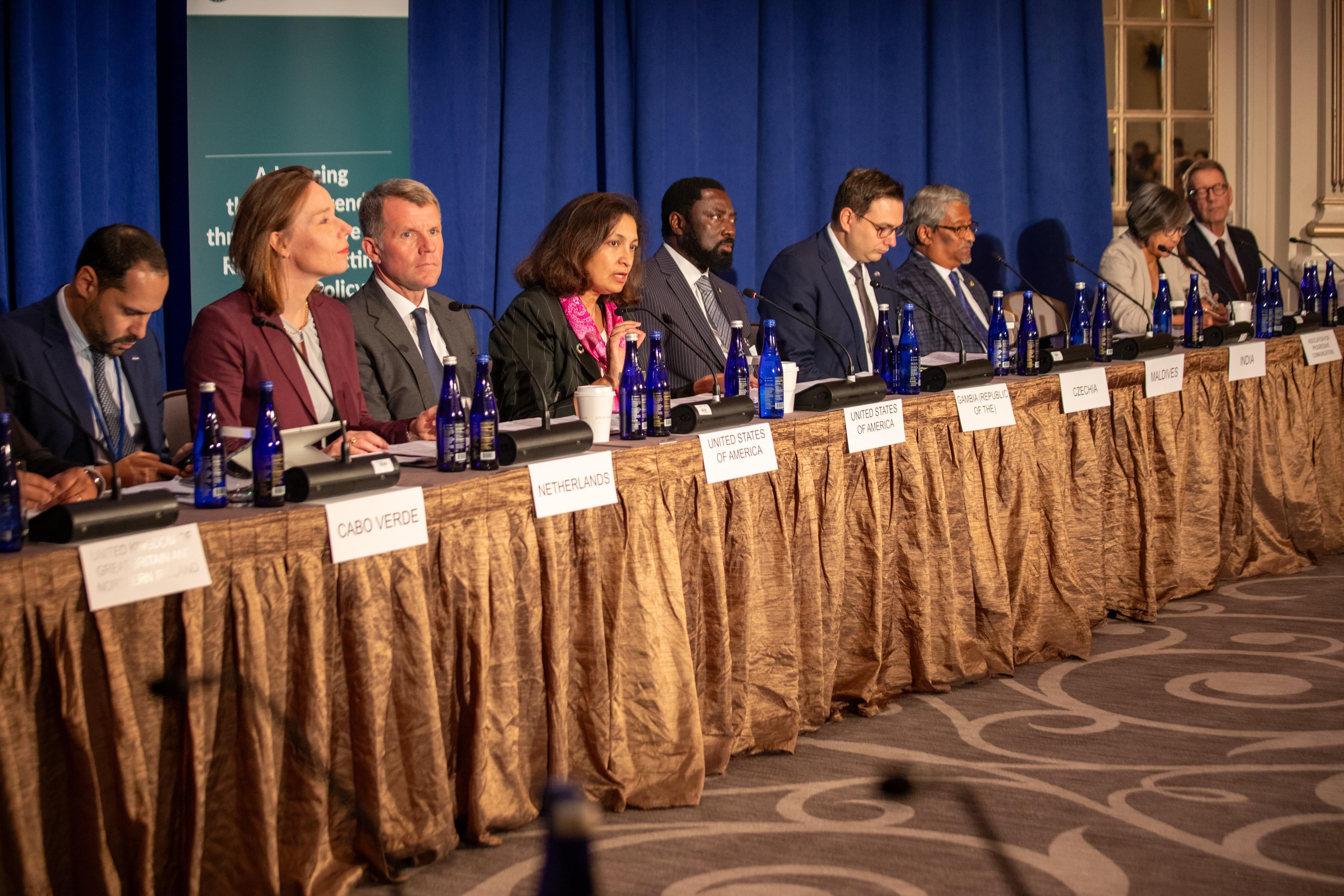



On Wednesday, 20 September on the margins of the 78th UN General Assembly, the United States, 2023 Chair of the Freedom Online Coalition (FOC), hosted a high-level side-event titled “Advancing the 2030 Agenda through Inclusive and Rights-Respecting Digital Policy”. The event was hosted by U.S. Under Secretary for Civilian Security, Democracy, and Human Rights Uzra Zeya, and convened 11 Ministers, 6 Deputy and Under-Secretary representatives, and 7 Executive Level representatives.
U.S. Secretary of State Antony Blinken provided keynote remarks, underscoring the Coalition’s role as a powerful international platform for critical discussions relating to emerging technologies and as a centre of action to shape inclusive, rights-affirming use of digital technologies. Secretary Blinken noted the Coalition’s priority policy areas and highlighted recent outputs to address the misuse of digital technologies, in addition to announcing the FOC’s intent to develop a pledge to incorporate responsible Artificial Intelligence (AI) practices in government development, procurement, and use of AI.
Dutch Minister of Foreign Affairs Hanke Bruins Slot announced that the Netherlands, a founding Member of the FOC, will Chair the Coalition in 2024. Minister Bruins Slot noted that FOC Member States will continue to facilitate important discussions on Internet governance, digital inclusion, human rights, and AI to further advance the Coalition’s shared goals and values in the coming year.
The Ministerial meeting featured a roundtable discussion with government representatives from the FOC (Czechia, Denmark, the Maldives, the Netherlands, the UK, and the U.S.), members of the Group of 77 (Cabo Verde and the Gambia), in addition to remarks from the International Telecommunications Union and members of the FOC Advisory Network (Association for Progressive Communications, Google, Microsoft, and Wikimedia Foundation), moderated by U.S. Ambassador at Large for Cyberspace and Digital Policy Nate Fick.
The roundtable discussion focused on connectivity, access and inclusion, and technology as an enabler of rights to advance UN Sustainable Development Goals (SDGs) 9, 10, and 16. Interventions explored both the challenges and opportunities that technology provides, as well as the role of the FOC in advancing the 2030 Agenda. Speakers highlighted the ubiquitous presence of digital technologies in daily life and emphasised the need for global, multistakeholder cooperation to develop inclusive and rights-respecting regulatory frameworks.
In addition to continuing efforts to expand Internet access globally, speakers underscored the importance of programs to foster and strengthen digital literacy to provide individuals with crucial skills to meaningfully engage in the digital space. Speakers also affirmed the crucial role that digital inclusion plays in addressing challenges arising from digital technologies, and in ensuring that legislation developed to mitigate these risks does not contribute to further oppression of marginalised groups.
The interventions addressed digital technologies in relation to the SDGs with both optimism and caution, recognising the opportunities that technological advancements offer while also appreciating the serious threats that can arise when these technologies are not appropriately regulated within a rights-respecting framework.
In addition, the governments of Georgia and Sweden provided remarks following the roundtable discussion, further emphasising the potential of digital technologies to accelerate progress towards the 2030 Agenda, the importance of collaborating with the multistakeholder community, and the role of ongoing processes such as the UN Global Digital Compact in advancing these efforts.
To view interventions provided by the participants, and a recording of the full event, visit the following page: www.freedomonlinecoalition.com/ministerial-meeting.
